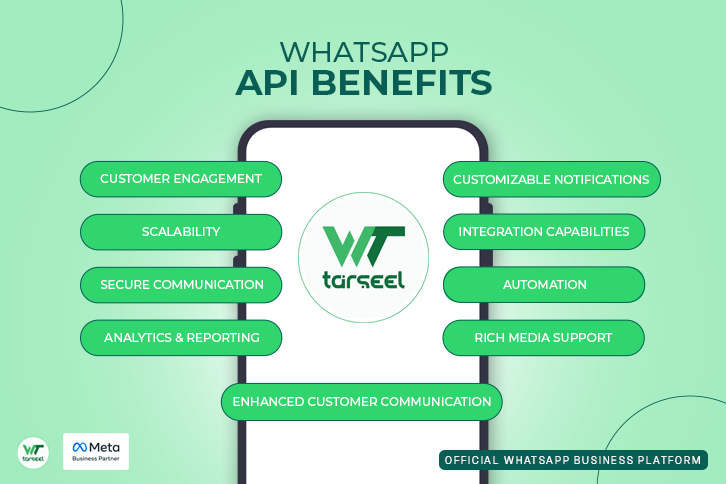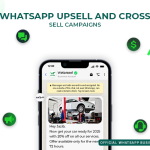In 2020, JioMart Took Just 3 Days to Get Over 400,000 Orders — via WhatsApp!
Yes, you read that right. When Reliance launched JioMart through WhatsApp in India, it didn’t build a fancy website or app. It simply let users place grocery orders via chat. In just three days, more than 4 lakh people placed orders — all through simple WhatsApp messages.
This wasn’t just a stroke of luck. It was the perfect example of how businesses are meeting customers exactly where they are — on their phones, chatting on WhatsApp.
If big names like JioMart, MakeMyTrip, and BookMyShow are using WhatsApp Business API to serve millions, why shouldn’t smaller businesses tap into the same power?
Let’s break down how WhatsApp Business API works, what makes it different from the regular WhatsApp Business app, and why more and more brands are making the switch — from local salons to global eCommerce giants.
Understanding WhatsApp Business API
WhatsApp Business API is not just another messaging app; it’s a powerful tool designed for medium to large businesses aiming to communicate with their customers at scale. Unlike the standard WhatsApp Business App, which is limited to a single device and user, the API allows integration with CRM systems, supports multiple users, and offers automation capabilities, making it ideal for businesses looking to enhance their customer engagement strategies.
Key Benefits of WhatsApp Business API
By integrating WhatsApp Business API into your sales and marketing strategies, you can enhance customer engagement, streamline operations, and drive additional revenue through effective upselling and cross-selling.
1. Instant Engagement with High Open Rates
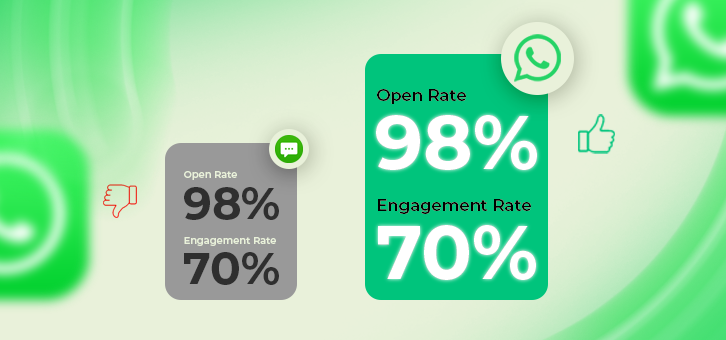
WhatsApp messages boast an impressive open rate, with over 80% being read within the first five minutes. This immediacy ensures that your upselling and cross-selling messages reach customers promptly, increasing the likelihood of engagement and conversion.
- Quick Response Time: Messages are typically read within seconds, allowing for timely promotions.
- Higher Visibility: Unlike emails that may go unnoticed, WhatsApp messages are more likely to be seen and acted upon.
2. Personalized Recommendations at Scale
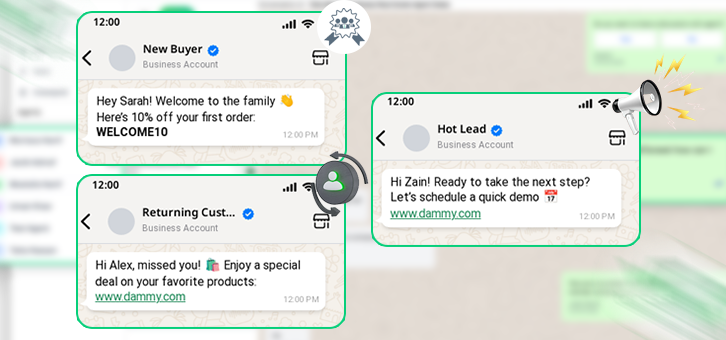
Leveraging customer data, businesses can send tailored product suggestions based on purchase history and browsing behavior. This personalization makes customers feel valued and increases the chances of additional sales.
- Customized Offers: Send specific product recommendations that align with individual customer preferences.
- Enhanced Customer Experience: Personalized messages foster a sense of connection and trust.
3. Rich Media Support for Product Showcases
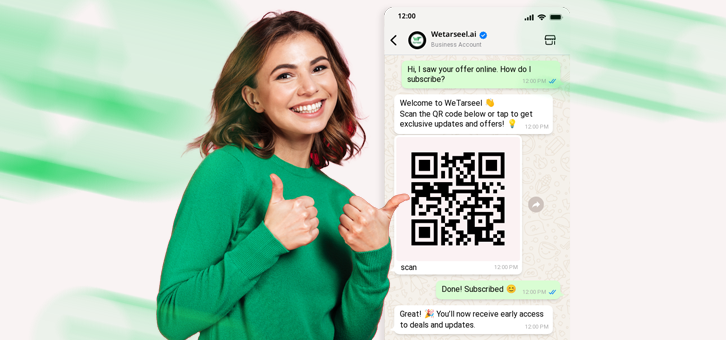
WhatsApp Business API allows the sharing of images, videos, and catalogs, enabling businesses to visually present products. This feature is particularly effective for cross-selling complementary items.
- Visual Appeal: High-quality images and videos can highlight product features and benefits.
- Interactive Catalogs: Customers can browse through product collections within the chat interface.
4. Automated Messaging for Timely Follow-Ups
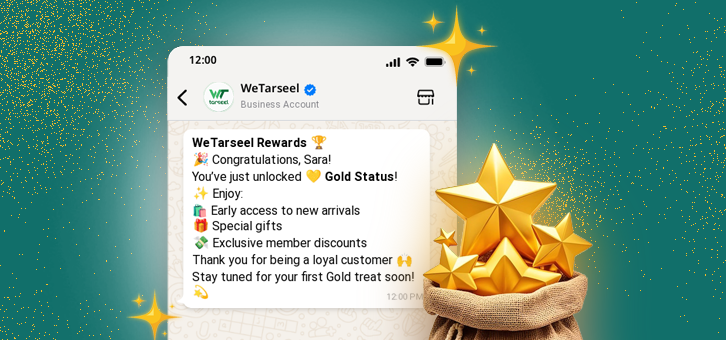
Automation enables businesses to send timely messages such as order confirmations, shipping updates, and post-purchase follow-ups. These messages can include upselling and cross-selling prompts.
- Efficiency: Automated messages reduce manual workload and ensure consistent communication.
- Timely Promotions: Send relevant offers at optimal times in the customer journey.
5. Integration with CRM and E-commerce Platforms
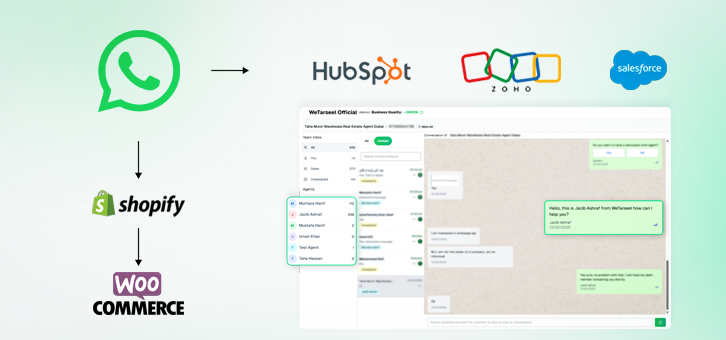
The API seamlessly integrates with existing CRM systems and e-commerce platforms, allowing for synchronized customer data and streamlined operations.
- Unified Customer Profiles: Access comprehensive customer information to tailor communications.
- Streamlined Operations: Manage customer interactions and sales processes more efficiently.
6. 24/7 Customer Support with Chatbots
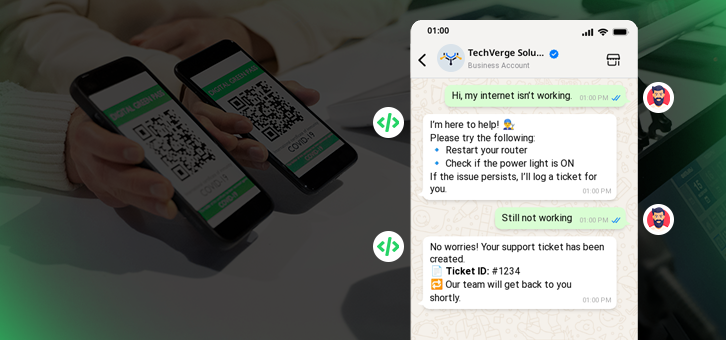
AI-powered chatbots can handle customer inquiries around the clock, providing instant responses and product recommendations, thereby facilitating upselling and cross-selling opportunities even outside business hours.
- Constant Availability: Address customer needs at any time, enhancing satisfaction.
- Proactive Engagement: Chatbots can initiate conversations based on customer behavior.
7. Segmentation for Targeted Campaigns
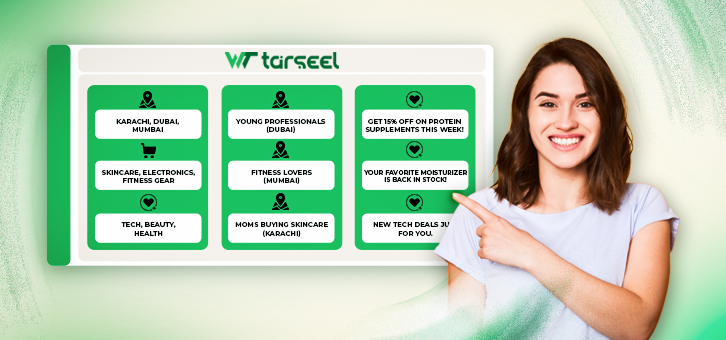
Businesses can segment their audience based on various criteria such as purchase history, location, and preferences, enabling more targeted and effective upselling and cross-selling campaigns.
- Customized Messaging: Tailor messages to specific customer segments for higher relevance.
- Improved Conversion Rates: Targeted campaigns are more likely to resonate and convert.
8. Secure and Private Communication

WhatsApp’s end-to-end encryption ensures that customer interactions remain private and secure, building trust and encouraging customers to engage more openly.
- Data Protection: Safeguard sensitive customer information during communications.
- Trust Building: Secure messaging fosters customer confidence in the brand.
9. Analytics for Performance Tracking
![]()
The API provides insights into message delivery, read rates, and customer responses, allowing businesses to assess the effectiveness of their upselling and cross-selling strategies.
- Data-Driven Decisions: Use analytics to refine messaging and campaign approaches.
- Continuous Improvement: Monitor performance and make informed adjustments.
10. Cost-Effective Marketing Channel
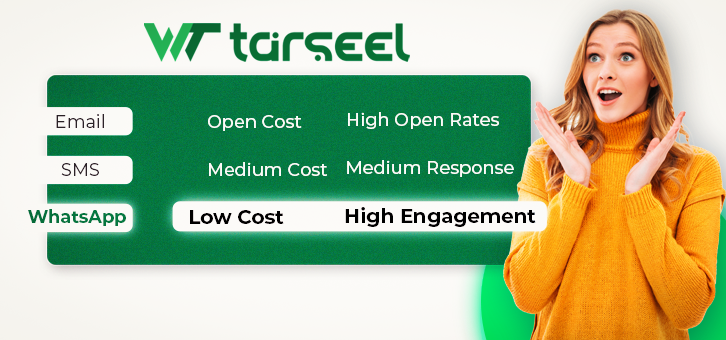
Compared to traditional marketing methods, WhatsApp offers a more affordable way to reach customers directly, making it an efficient channel for promoting additional products and services.
- Reduced Marketing Costs: Lower expenses compared to email or SMS campaigns.
- Higher ROI: Direct communication often leads to better engagement and sales outcomes.
Final Thoughts
Customers don’t want to fill out long forms or wait hours for a reply anymore. They want quick answers, simple conversations, and the feeling that they’re talking to a real person — not a robot.
That’s exactly what WhatsApp Business API makes possible.
It’s not just a “nice-to-have” anymore. It’s becoming the new way people expect to talk to businesses. Whether you’re running a small store or managing thousands of orders a day, WhatsApp helps you show up where it really matters. And that’s inside your customer’s pocket.
So, if you’re still stuck with email threads and missed calls, maybe it’s time to ask:
Is your business talking where your customers are actually listening?

